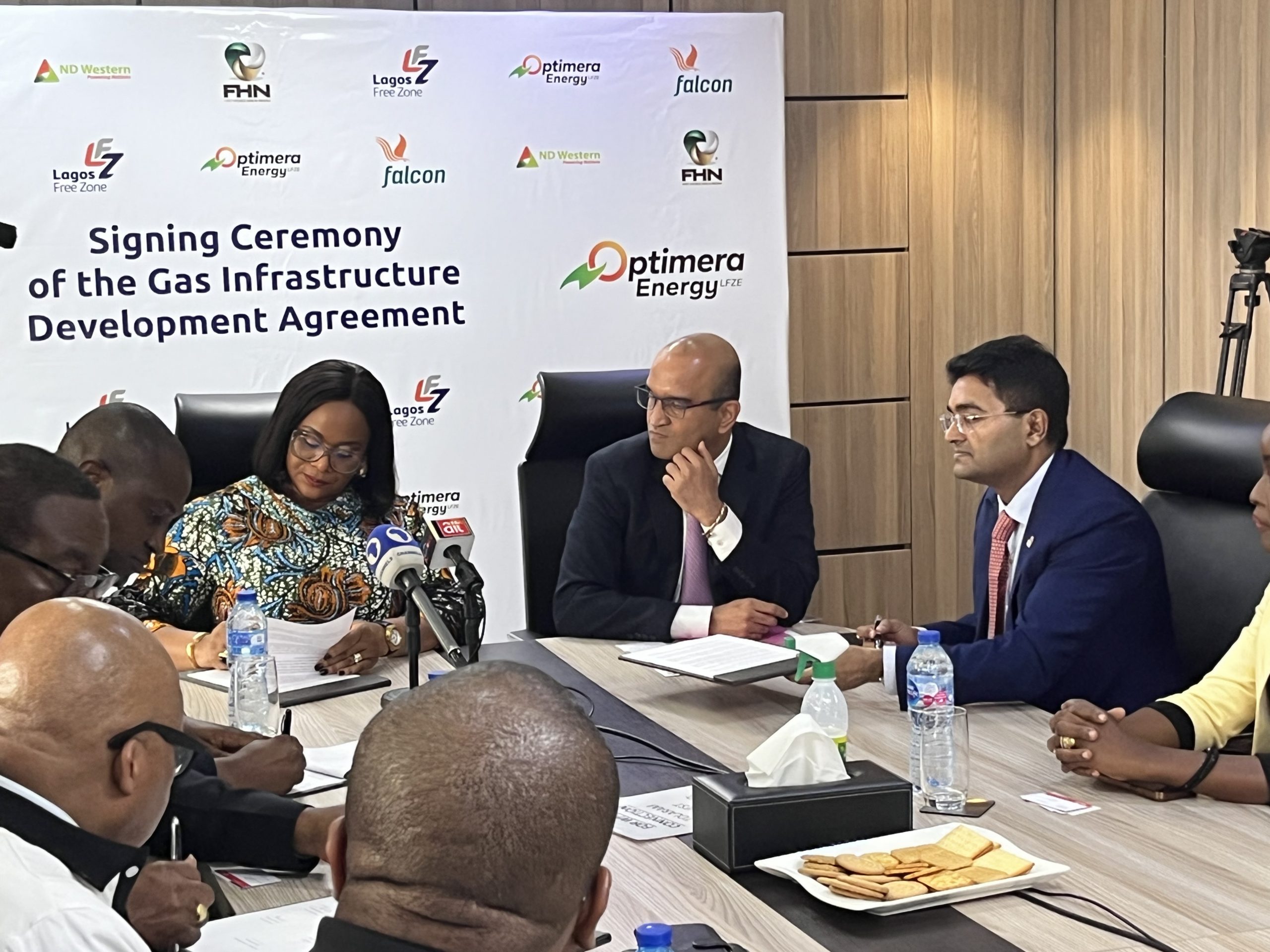The Lagos Free Zone (LFZ) has officially signed earlier today a Gas Infrastructure Development Agreement with Optimera Energy FZE to develop its own gas distribution network. The new project gathers some of Nigeria’s leading gas players around a new venture committed to promoting gas-based industrialisation.
West Africa’s leading industrial hub needs gas
Located on the Lekki Corridor, the Lagos Free Zone covers some 830ha and is quickly emerging as West Africa’s leading integrated multi-cluster industrial zone. The project is promoted by the Tolaram Group of Singapore and is co-located with the Lekki Port, Nigeria’s deepest multi-purpose seaport, expected to be completed this year.
LFZ has already been successful in attracting several industrial companies and manufacturers including TG Arla, Kellogg’s, Colgate, BASF, Saba Building Systems, or Raffles Oil amongst others. As the zone grows, it seeks to cater for potential high-growth sectors such as FMCG, pharmaceuticals, chemicals, engineering, non-metallic minerals, logistics and mixed-use. This is in return increasing the need to provide world-class infrastructure, including a reliable energy supply.

Optimera Energy is now in charge of building, owning, and operating the natural gas distribution network within the free zone. The project is expected to require some $20-25m, with uninterrupted deliveries of piped gas expected to start in 2024. Initial capacity will be set at 5 MMscf/d before being gradually increased to 40 MMscf/d as demand in the zone picks up.
The special purpose vehicle (SPV) gathers three of Nigeria’s strongest gas players including natural gas distributor Falcon Corporation Ltd and independent oil & gas companies ND Western and First Hydrocarbon Nigeria (FHN) via their respective subsidiaries ND Western Midstream Ltd and FHN Gas Ltd.
“The Optimera consortium is made up of like-minded shareholders who are passionate about a common goal: accelerating the further growth of domestic gas utilisation in Nigeria. Having reliable dedicated gas supply infrastructure installed in the LFZ adds tremendous value to existing industrial concerns and will increase the Zone’s attractiveness to future customers.”
Audrey Joe-Ezigbo, Managing Director of Optimera Energy and Deputy Managing Director of Falcon Corporation.
Promoters of gas-based industrialisation
Falcon Corporation has been successfully operating the Ikorodu natural gas franchise in Lagos since November 2006 and will bring its experience in building and operating gas pipeline networks for industries. The company is also a bulk distributor of Liquefied Petroleum Gas (LPG) in the domestic market and is actively developing LPG bulk storage infrastructure in the Niger Delta.

On the other side, both ND Western and FHN are amongst Nigeria’s biggest gas producers from OML 34 and OML 26 in the Niger Delta, with combined gas reserves of over 4 Tcf. Via Optimera Energy, they will be transporting their gas to the Lagos Free Zone via the Escravos-Lagos Pipeline System (ELPS).
ND Western has notably increasingly positioned itself as an enabler of industrialisation in Nigeria. The company already supplies gas to several power plants in the country via ELPS and exports gas to West African markets via the West Africa Gas Pipeline (WAGP). On OML 34, it has recently embarked on the development of an industrial park providing industries with direct access to cheaper gas directly at the pump.
The rise of gas-to-industry in Nigeria
Because the power sector remains illiquid, the promotion of gas utilization across other industries is seen as a priority under Nigeria’s Decade of Gas initiative. Chief amongst them is the expansion of the downstream gas sector, especially Autogas for cars and piped natural gas (PNG) for industries.
Consequently, industrial gas off-takers are on the rise, and the volumes of domestic gas monetised by Nigerian industries (gas-to-industry) have doubled between 2015 and 2021.

To know more about the trends, actors, and projects shaping up Nigeria's natural gas sector, please log into your Hawilti+ research terminal at plus.hawilti.com.

